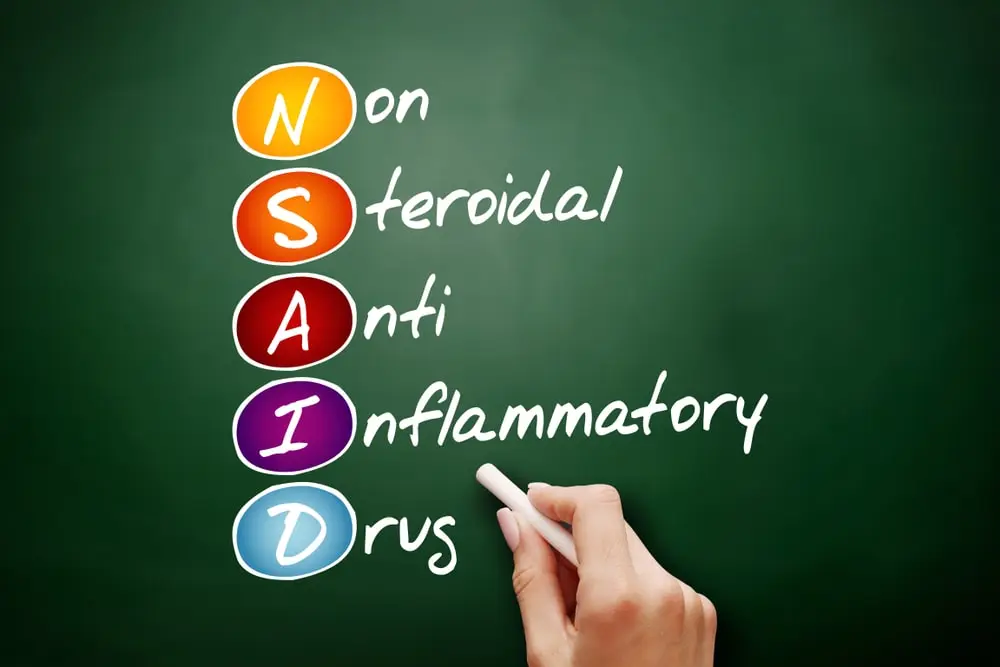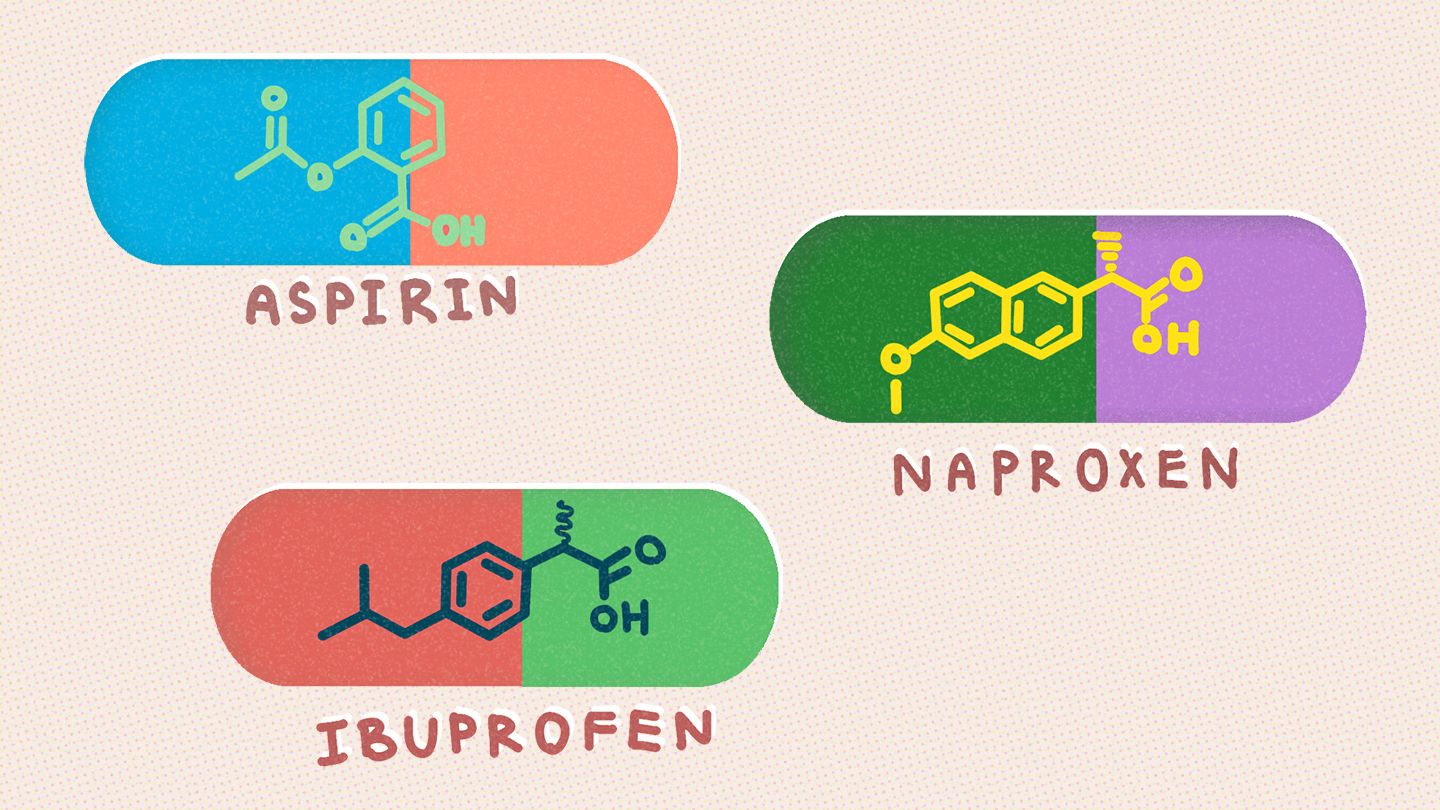The Role of PPIs in Conjunction with NSAIDs
Nonsteroidal anti-inflammatory drugs (NSAIDs) are a widely used class of medications to relieve pain and reduce inflammation, making them a common choice for conditions such as arthritis, musculoskeletal injuries, and headaches.

However, long-term NSAID use can lead to gastrointestinal complications, including ulcers and bleeding. To mitigate these risks, healthcare professionals often prescribe proton pump inhibitors (PPIs) in conjunction with NSAIDs.
In this article, we will explore the reasons behind this practice and the benefits of using PPIs alongside NSAIDs.
NSAIDs and Gastrointestinal Complications
NSAIDs and Gastrointestinal Complications NSAIDs work by inhibiting enzymes called cyclooxygenases (COX), which are responsible for the production of prostaglandins, substances that mediate pain and inflammation.
However, prostaglandins also play a crucial role in maintaining the protective lining of the stomach and intestines.
When NSAIDs block COX enzymes, they reduce the production of protective prostaglandins, leaving the stomach and intestines vulnerable to the damaging effects of stomach acid.
This increased vulnerability can lead to a variety of gastrointestinal complications, including;
1. Stomach ulcers: NSAIDs can disrupt the protective lining of the stomach, leading to ulcer formation. These ulcers can cause pain, bleeding, and in severe cases, perforation.
2. Gastrointestinal bleeding: NSAIDs may irritate the lining of the stomach and intestines, leading to inflammation and bleeding. This bleeding can be mild, manifesting as minor chronic blood loss, or more severe, leading to obvious symptoms such as black, tarry stools.
3. Gastrointestinal perforation: In some cases, long-term use of NSAIDs can lead to perforation of the stomach or intestines, causing stomach acid and digestive enzymes to leak into the abdominal cavity, a potentially life-threatening condition.
4. Dyspepsia: NSAIDs can cause dyspepsia, a term used to describe upper abdominal discomfort or pain, often accompanied by bloating, burping, and nausea.
The Role of PPIs in NSAID Therapy
Proton pump inhibitors are a class of medications that reduce the production of stomach acid by inhibiting the action of proton pumps in the stomach lining. These pumps are responsible for releasing acid into the stomach to aid in digestion, and PPIs work by blocking their activity.
The use of PPIs alongside NSAIDs can be beneficial for several reasons including;
1. Reducing Gastric Acid Secretion: PPIs are highly effective at decreasing the production of stomach acid, creating an environment that is less hostile to the gastrointestinal mucosa. This can help prevent the formation of ulcers and reduce the risk of bleeding.
2. Promote mucosal wound healing: By reducing acid production, PPIs promote healing of existing mucosal wounds in the stomach and intestines. This may be especially beneficial for people who have developed ulcers caused by NSAIDs.
3. Symptom relief: PPIs may reduce symptoms of indigestion and heartburn that are common side effects of NSAID use, thereby improving patient comfort and compliance with NSAID therapy.
4. Preventing recurrence: PPIs may help prevent recurrence of stomach ulcers and bleeding in patients requiring long-term NSAID treatment for chronic conditions such as osteoarthritis or rheumatoid arthritis.
When to Use PPIs with NSAIDs
The decision to use PPIs in combination with NSAIDs should be based on careful assessment of individual risk factors and the patient’s medical history. In general, healthcare providers may consider prescribing PPIs in the following situations:
1. High-risk patients: Patients with a history of gastrointestinal complications or those at higher risk due to Age, concomitant use of anticoagulants or corticosteroids, or prior ulcers should be considered for treatment with PPIs when using NSAIDs.
2. Long-term NSAID use: Patients who require NSAIDs for long periods of time, such as those with chronic pain, are more likely to benefit from PPIs to prevent long-term gastrointestinal damage.
3. Indigestion symptoms: People who experience indigestion symptoms while taking NSAIDs may find relief when taking PPIs. It is essential to treat these symptoms promptly to ensure patient comfort and treatment compliance.
Nonsteroidal anti-inflammatory drugs are valuable medications for controlling pain and inflammation, but they carry a risk of gastrointestinal complications, including ulcers and bleeding. Proton pump inhibitors (PPIs) are often used in combination with NSAIDs to reduce these risks by reducing stomach acid production, promoting mucosal healing, and reducing symptoms.
The use of PPIs in addition to NSAIDs should be individualized, taking into account the patient’s risk factors and medical history. By carefully assessing each patient’s needs and prescribing PPIs when appropriate, healthcare professionals can improve the safety and effectiveness of NSAID treatment, allowing patients to receive the level of pain relief they need, while minimizing the risk of gastrointestinal complications.
